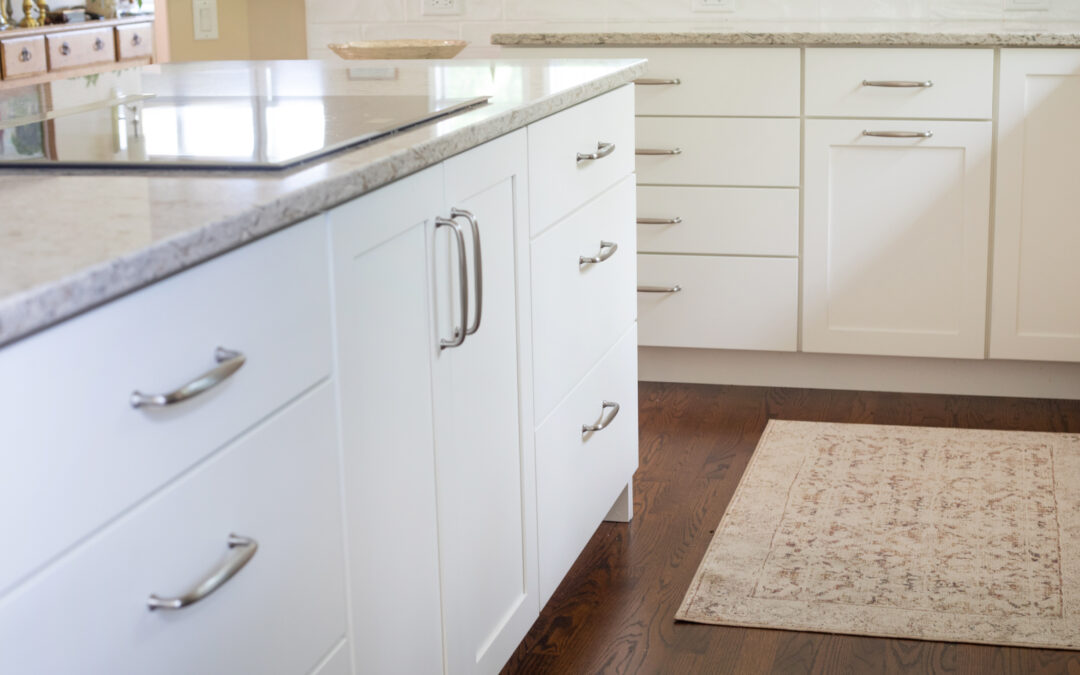Questions to Ask a Contractor Before You Start
Creating a remodeling project that will increase your home’s value for sale or your enjoyment of your home is exciting and exhausting.
In parts 1, 2, and 3 of this series, you’ve asked yourself the basic questions: 1) Why am I remodeling, 2) What’s my budget, and 3) What are the priorities. You’ve learned about your style through creating your brand, and you’ve thought through the details of living through the remodel.
This article continues the final element: choosing your contractor. This topic is worthy of a novella. Enough cannot be said about finding the right contractor for your project. Links to several articles are included at the end to help illustrate that point.
Referrals
A common way to begin is to ask people you trust if they’ve worked with anyone they would recommend. Get the details of their project to see if it shares similarities in scale to yours.
Contractors often put signs on the front lawns of projects they’re currently working on. Take note of business names and search them out online. They’re current client chose them for a reason.
Speaking of online, search business websites and social media for comments on their work. Read both positive and negative comments with thoughtful consideration, looking for details. “They did a great job” doesn’t tell you much. Neither do negative comments that speak to complaints that either is not relevant to the work performed or are outside the scope of the project. Your goal is a remodel that will increase your home’s value. The quality of the work is integral to that goal.
Interviewing Prospective Contractors
Good contractors are busy professionals. Depending on the size of the firm, they may have estimators that evaluate projects and provide estimates, but in any case, you should be professional as well.
Having a thorough list of questions in front of you keeps the conversation focused and ensures you ask the same questions of each person. Having a written detailed description of the project ensures everyone is on the same page, and again, keeps the conversation focused. It’s very easy to get into a rabbit hole discussion on one aspect and completely forget another. At the very least, this is frustrating if they must redo an estimate, and disastrous if this occurs with the winning contractor and isn’t caught before work begins.
Your list of questions should include, at a minimum: how many years of experience do they have with projects similar to yours; are they licensed and insured for the types of work required; relevant references; if they are a general contractor, how do they engage the licensed and insured subcontractors required for the work; who will pull the required permits and arrange inspections; how often can you expect updates on the project, and what is the preferred method of communication?
Communication is the key to the success of the project, but there are things you don’t want to tell prospective contractors, such as your budget or that time isn’t an issue.
The timeline question can be complicated, depending on the project. For example, kitchen remodels are notorious for cabinet and appliance delays. If the contractor gives you an anticipated timeline of three months and some element of the project is delayed, how will that be handled? Who is responsible for ordering and shepherding components to minimize the impact?
Quotes Versus Estimates
An estimate is just that – an approximation or best guess of what the project will cost. A quote is more specific, and the contractor must perform the outlined work for the quoted price. There are exceptions, of course.
Estimates should be thorough and detailed. Review them carefully. They should also include a deposit amount – of 5 to 50% is common, depending on the size of the project, a payment schedule, and penalties for delays and missed deadlines that are the responsibility of the contractor. The articles linked below offer more guidance.
There are a lot of moving pieces to a remodel. Whether the reason for the remodel is to sell or more enjoyment of your home, increasing your home’s value is at the forefront. Mistakes and mishaps that lead to cost overruns can affect the stress level and ending up with the outcome you envisioned.
A Design-Build firm “provides a cohesive and creative management and construction path”, taking the project from initial design through construction to a beautiful home. While you’re interviewing contractors, compare what they have to offer with the services provided by an award-winning Design-Build firm.
Additional resources:
12 Questions to Ask Before Hiring a Contractor
15 Must Ask Questions For a Contractor

